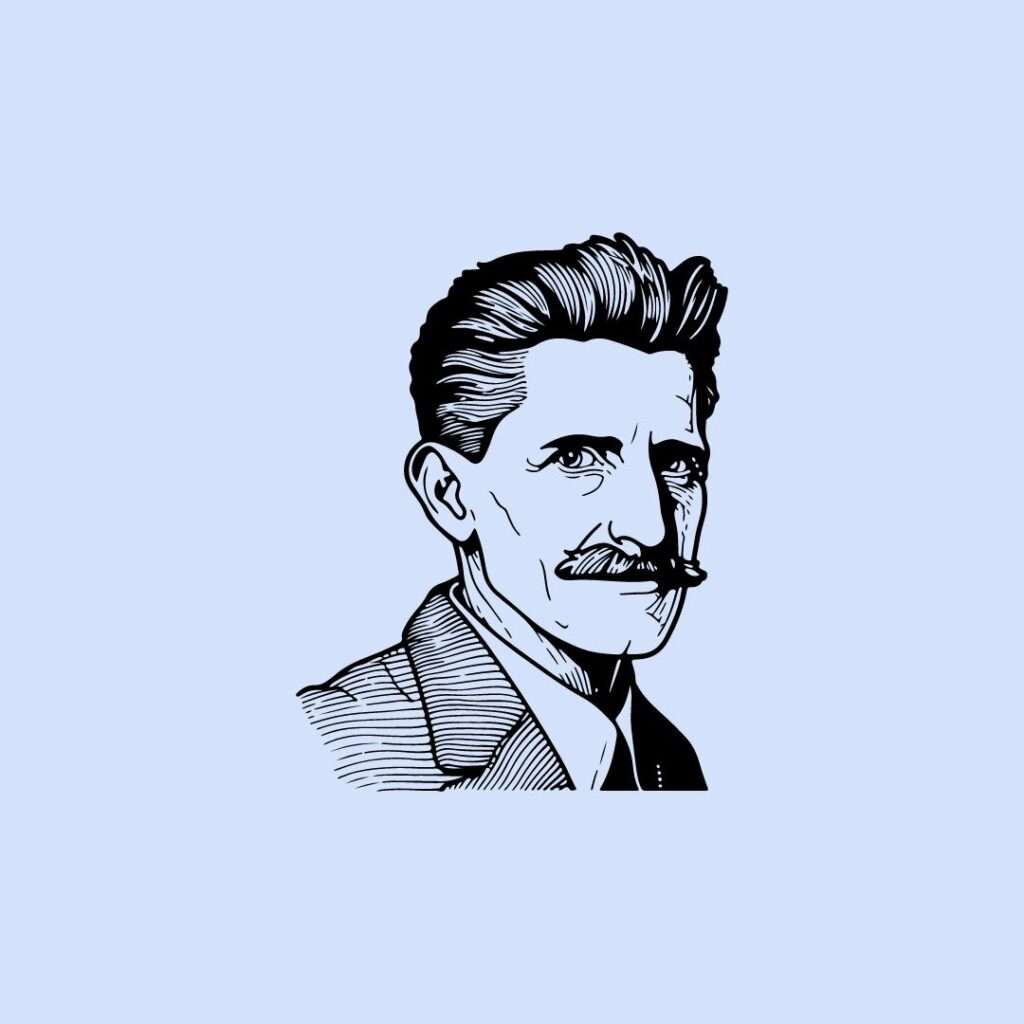Table of Contents
- Introduction
- 1. Charles Dickens
- 2. Virginia Woolf
- 3. William Shakespeare
- 4. George Orwell
- 5. J.K. Rowling
- 6. Mary Shelley
- 7. Agatha Christie
- Conclusion
Introduction
London, the vibrant capital of England, has been a beacon of literary brilliance for centuries. From the cobblestone streets of Dickensian London to the modernist musings of Virginia Woolf, the city has nurtured and inspired some of the most remarkable authors in history. The write-up introduces seven famous authors from London who lit the literature world.
Not all these seven authors were born in London, but they all made London home to some of their best works. Get ready to be transported into the pages of their timeless masterpieces as we explore the indelible mark they left on the world of literature.
1. Charles Dickens
Step into the gritty and atmospheric world of Victorian London through the pen of Charles Dickens. Born in Portsmouth in 1812, Dickens spent much of his life in London, drawing inspiration from the city’s diverse characters and social issues. His novels, such as Oliver Twist, Great Expectations, and A Tale of Two Cities, are renowned for their vivid descriptions, memorable characters, and biting social commentary.
Dickens’ works shed light on the plight of the poor and the inequalities of 19th-century society, making him a voice for the voiceless. As he famously wrote in A Tale of Two Cities:
“It was the best of times, it was the worst of times.”
The phrase captures the essence of an era marked by progress and poverty.
2. Virginia Woolf
Virginia Woolf, a pioneering figure of the modernist movement, left an indelible mark on the literary landscape of the early 20th century. Born in London in 1882, Woolf was a central figure of the Bloomsbury Group, a collective of intellectuals and artists who challenged traditional norms. Her innovative writing style, characterized by a stream of consciousness and reflective narratives, revolutionized the novel form.
Works like Mrs. Dalloway and To the Lighthouse delve deep into characters’ inner lives, exploring themes of identity, feminism, and the human experience. Woolf’s contributions extend beyond her writing; she was also an influential essayist and critic, advocating for women’s rights and the importance of education. Her famous essay A Room of One’s Own remains seminal in feminist literature, asserting that “a woman must have money and a room of her own if she is to write fiction.”
3. William Shakespeare
Without mentioning William Shakespeare, the Bard of Avon, no discussion of London’s literary legends would be complete. Although born in Stratford-upon-Avon, Shakespeare spent much of his career in London, where he wrote and performed his plays. His works, including tragedies like Hamlet and Macbeth, comedies such as A Midsummer Night’s Dream and Twelfth Night, and historical plays like Henry IV and Richard III, have endured for centuries, captivating audiences with their timeless themes, complex characters, and poetic language.
Shakespeare’s influence extends far beyond the stage; his writing and plays have been adapted into countless films, operas, and ballets, and his words have permeated our everyday language. Hamlet famously muses:
“To be, or not to be, that is the question.”
Shakespeare’s works continue to pose profound questions about the human condition.
4. George Orwell
George Orwell, born Eric Arthur Blair in 1903, is renowned for his dystopian novels and incisive social commentary. Although not a native Londoner, Orwell spent significant portions of his life in the city, witnessing firsthand the effects of poverty and social inequality. His experiences in London shaped his political views and informed his writing, which often critiqued totalitarianism and the abuse of power.

Orwell’s most famous works, Animal Farm and 1984, are allegorical tales that warn against the dangers of oppressive regimes and the erosion of individual freedom. His writing style, characterized by clarity, wit, and biting satire, continues to resonate with readers today. As he wrote in 1984, “If you want a picture of the future, imagine a boot stamping on a human face—forever,” Orwell’s words serve as a chilling reminder of the importance of vigilance in the face of tyranny.
5. J.K. Rowling
J.K. Rowling, the creator of the beloved Harry Potter series, is a modern-day literary sensation whose journey to success began in London. Born in 1965, Rowling moved to London in the 1990s, where she wrote much of the first Harry Potter book while struggling as a single mother on welfare. Her enchanting tales of a young wizard and his adventures at Hogwarts School of Witchcraft and Wizardry captured readers’ hearts worldwide, sparking a global phenomenon.
The Harry Potter books have sold over 500 million copies, been translated into over 80 languages, and adapted into a blockbuster film series. Rowling’s success story is a testament to the power of imagination and perseverance. She once said, “I was set free because my greatest fear had been realized, and I still had a daughter who I adored, and I had an old typewriter and a big idea. And so rock bottom became a solid foundation on which I rebuilt my life.”
6. Mary Shelley
Mary Shelley, born Mary Wollstonecraft Godwin in 1797, is best known as the author of Frankenstein, a groundbreaking work of science fiction that explores the consequences of playing God. Shelley spent much of her life in London, where she was part of a circle of Romantic writers and intellectuals, including her husband, the poet Percy Bysshe Shelley.
Frankenstein, published anonymously in 1818, tells the story of a scientist who creates a sapient creature in an unorthodox experiment. The novel raises profound questions about the nature of life, the pursuit of knowledge, and the responsibilities of creation. Shelley’s masterpiece has endured for over two centuries, inspiring countless adaptations in literature, film, and popular culture.
Her legacy extends beyond Frankenstein; she was also a prolific writer of travelogues, biographies, and other novels. Shelley’s life was marked by tragedy, including the loss of her husband and several children, but she persevered and left an indelible mark on the literary world. As she wrote in Frankenstein, “Life, although it may only be an accumulation of anguish, is dear to me, and I will defend it.”
7. Agatha Christie
Agatha Christie, born in 1890, is the undisputed queen of crime fiction. Although not born in London, Christie spent much of her life in the city, where she wrote many of her famous detective novels featuring characters like Hercule Poirot and Miss Marple. Christie’s intricate plotlines, clever red herrings, and surprising twists have captivated readers for generations.
Her works, such as Murder on the Orient Express, The Murder of Roger Ackroyd, and And Then There Were None, are considered genre classics and have been adapted numerous times for stage, screen, and radio. Christie’s influence on the mystery genre is unparalleled; she is the best-selling novelist of all time, with over two billion copies of her books sold worldwide. Her legacy lives on through the countless writers she has inspired and the enduring popularity of her timeless tales of suspense.
Conclusion
We have covered seven famous authors from London. These literary legends have left an indelible mark on the world of literature, shaping genres, challenging norms, and captivating readers across generations. From the social realism of Charles Dickens to the modernist experimentation of Virginia Woolf, from the poetic genius of William Shakespeare to the dystopian visions of George Orwell, from the magical storytelling of J.K. Rowling to the gothic imagination of Mary Shelley, and the mystery mastery of Agatha Christie, these authors have enriched our literary landscape with their unique voices and timeless tales.
Their works continue to inspire, provoke, and entertain, reminding us of the transformative power of the written word. As we celebrate their contributions, let us also embrace the legacy they have left behind and continue to explore the rich tapestry of London’s literary heritage. Who knows what new legends may emerge from the streets of this enduring city of stories?
